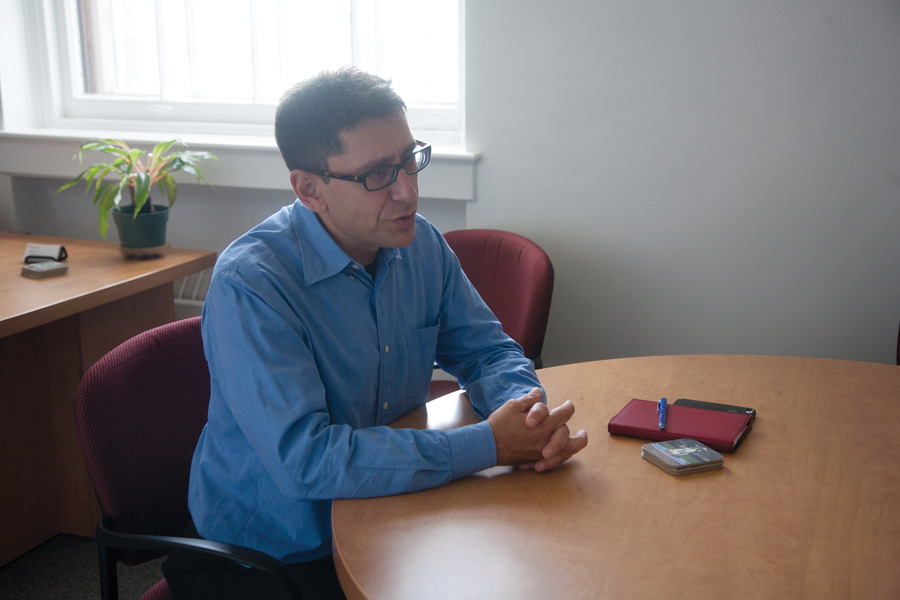On Sept. 1, Ollivier Dyens officially began his five-year term as McGill’s second Deputy Provost (Student Life and Learning) (DP (SLL)). Created in 2005, the DP (SLL) position aims to improve student life at McGill and to act as a liaison between the senior administration and students. Last week, the Tribune sat down with Dyens to discuss his goals for the year and his approach to the portfolio.
McGill Tribune (MT): What kind of challenges does McGill present in contrast to your previous position as Vice Provost (Teaching and Learning) at Concordia?
Ollivier Dyens (OD): A different culture, different mission. The perception of McGill within the community is extremely strong. In all the universities I’ve attended and seen and worked in, I’ve never seen a place where there’s so much faith in the institution as there is here. I’m not saying there are no problems, I’m just saying people have a sense of the McGill community as a strong community, and people believe in that community. This is why we probably have issues once in a while—because everyone cares about McGill.
MT: What are your goals for your five-year term?
OD: I really want to put the emphasis on making the campus an interesting and stimulating learning environment, where you can apply some of your knowledge and where we can also do community outreach programs. The first thing we need to do is to really clearly establish the narrative of “student life and learning,” because I don’t think it’s really clear. What exactly do we offer students? That would be the first goal for the year—principles, sort of a strategic plan, and then the following year we can start building these things. I want SLL to provide a very supportive environment so you can focus on the classroom, but I also want this environment to be an extension of what happens in the classroom. So some of the theoretical knowledge you get in the classroom, you can apply some of it through projects on campus that might have an outreach aspect to them.
MT: Could you give an example?
OD: There are some websites out there where people host problems or issues—usually they’re related to engineering problems or issues—[and] the community says ‘ok, we’ll try to figure this out’ and they post a solution. I can imagine something [at McGill] where the community could post some of the issues they’re having. Students could get together from different faculties and try to tackle that issue. The way I see it, the ultimate goal of an institution such as ours is to improve the community. The rest is all a means to that.
MT: This position has received some negative attention in the past. Do you have any plans for turning around that perception?
OD: I’m not going to talk about the past because I wasn’t present. All I can say is that my goal for this year and the following years is to create intellectual partnerships with students. Moving forward, all I can say is that I’ve promised two things to the student unions—respect and transparency. Once in a while we’ll probably not agree on things, but they’ll get my full respect and we’ll explain to them clearly why our position is the current one. My experience is that when you’re transparent about what your own constraints are, negotiations are much easier because people understand that you’re not trying to do anything negative, you’re just working with what you have. Those constraints can be financial [or] legal in nature, government restrictions, or budget cuts, but we have to deal with what we’re getting.
MT: Is there anything you plan on changing about the way that this position is run?
OD: It’s a complex institution, so it’s too early for me to tell. The objective for me is to develop a coherent narrative including all the community, so the dialogue needs to be constant. I will be present at as many events as possible. Katie [Larson, Students’ Society of McGill University president] and I have decided we would try to do the rounds of all the residences at lunch or at breakfast and meet with the students, because in my position I need to know what the student body is thinking. The students who are just focusing on their classroom experience, they’re not going to talk to their student union because they don’t have time for that. I’ll try to be there as often as possible for them to tell me what those issues are.
—This interview has been conducted, condensed, and edited by Erica Friesen.









